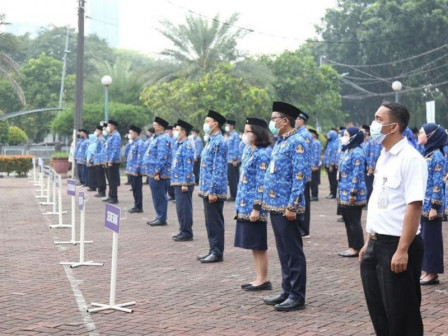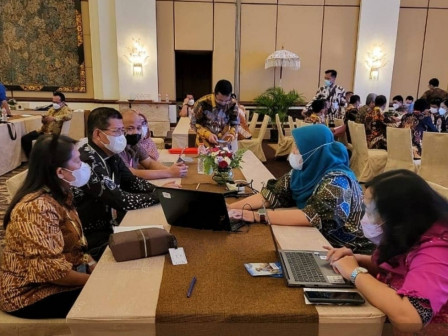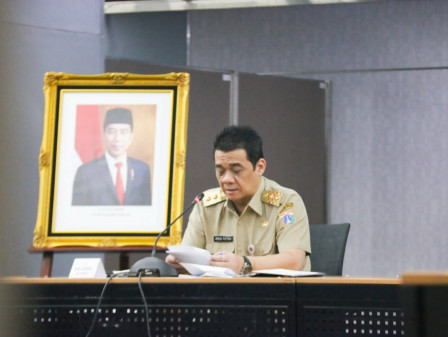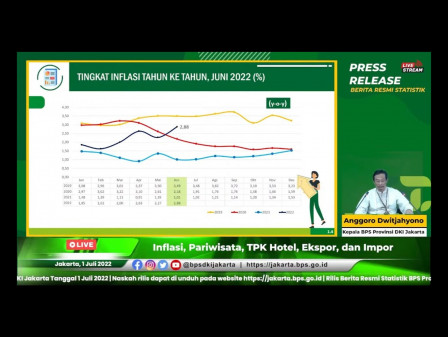75th National Cooperative Day, City Pushes Cooperative Transformation for a Sustainable Economy
Reported by Aldi Geri Lumban Tobing | Translated by Nugroho Adibrata
The Jakarta Industry Trade Cooperatives and Small and Medium Enterprises Agecy (PPKUKM) held the 75th National Cooperative Day Commemoration, themed "Cooperative Transformation for a Sustainable Economy" with the tagline 'Ayo Berkoperasi', on Tuesday (7/12).
This is intended to transform cooperatives
The commemoration was led by PPKUKM Agency Head Elisabeth Ratu Rante Allo at the PPKUKM Agency Office, Kelapa Gading, North Jakarta.
"This is intended to transform cooperatives, namely changing the image of old and conventional cooperative models into new and professional models along with the times," she expressed, as quoted by Jakarta PPID'S press release.
New Integrated Service Center Now Opens at ITC Cempaka MasIn her speech, she quoted a speech from the Cooperatives and Small and Medium Enterprises (SMEs) Minister Teten Masduki who stated that cooperative development was sought to grow in line with other business entities.
"The journey of cooperative development is strived to grow parallel to other business entities, has high sensitivity in business development, and is in demand by the younger generation," she explained.
Further, the history or forerunner of cooperatives in Indonesia has existed since the Dutch colonial era. Cooperatives in Indonesia were first introduced by Patih R. Aria Wiria Atmaja in 1896.
It was created after seeing the number of civil servants who were tormented and suffered from the exorbitant interest rates from moneylenders who gave money loans.
Finally, Atmaja set up a bank for civil servants, namely a credit cooperative by adopting the system in Germany.
While visiting Germany, Assistant Resident for Dutch De Wolffvan Westerrode responded to Atmaja's actions, in which he would convert the existing Bank Pertolongan Tabungan (Savings Relief Bank) into Bank Pertolongan, Tabungan, dan Pertanian (Relief, Savings and Agricultural Bank).
After that period, cooperatives began to rapidly develop in Indonesia. It was also driven by the nature of the Indonesian people who tended to work together and kinship following cooperative principles.
To anticipate rapid economic developments, the Dutch East Indies government at that time also issued legislation on cooperatives.





